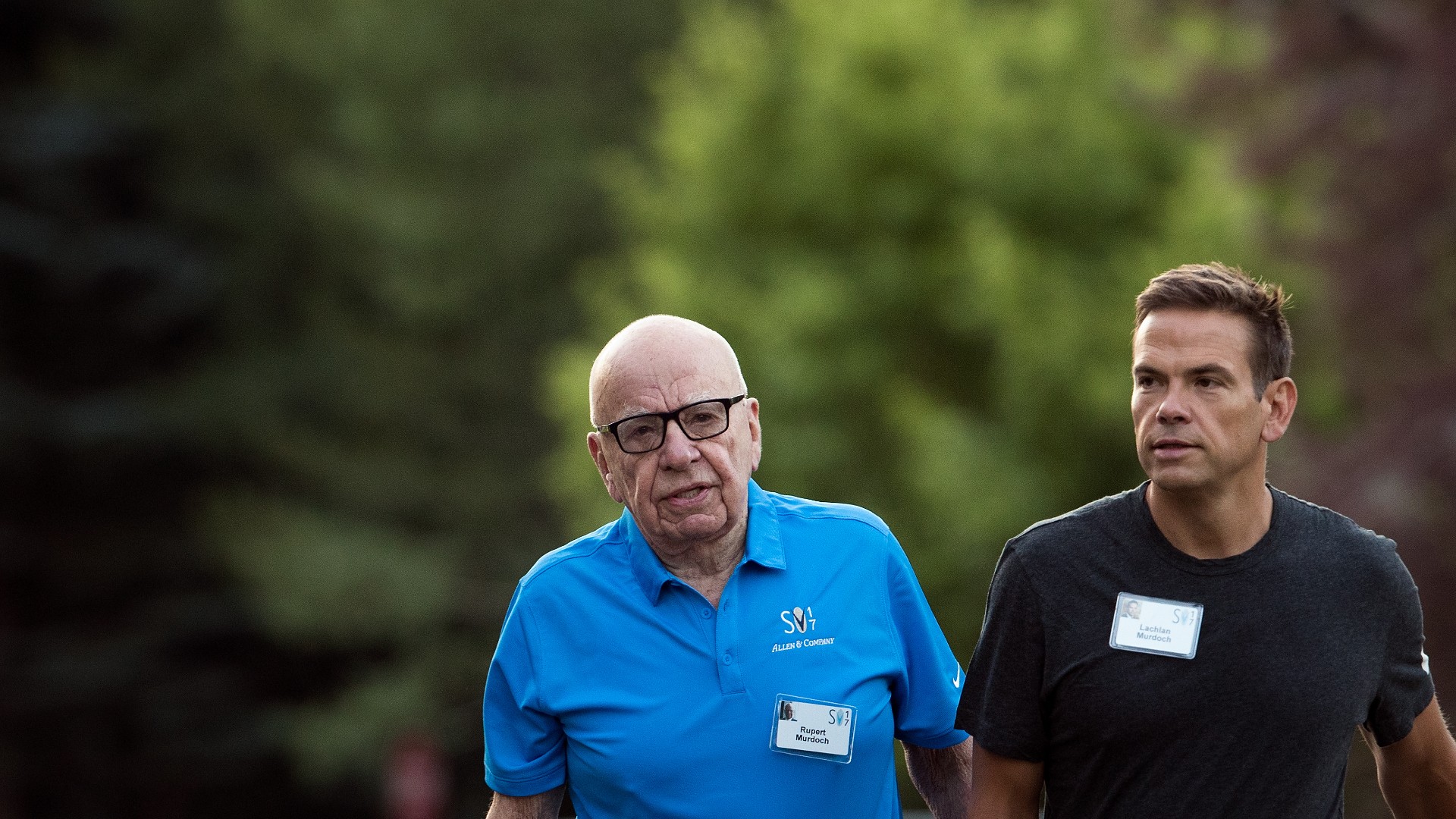Rupert Murdoch's behind-closed-doors succession court battle
Media mogul's legal dispute with three of his children over control of his influential empire begins today

A free daily email with the biggest news stories of the day – and the best features from TheWeek.com
You are now subscribed
Your newsletter sign-up was successful
A "momentous" court battle to determine the future of Rupert Murdoch's media empire and his £14.9 billion family trust begins in Nevada today.
The fate of "a string of newspapers and television channels consumed by millions of people around the world" is at stake, as well as "thousands of jobs" and "billions of pounds", said Sky News.
The 93-year-old media mogul "has spent decades building up his news brands, making them some of the most powerful and influential in the Western world".
The Week
Escape your echo chamber. Get the facts behind the news, plus analysis from multiple perspectives.

Sign up for The Week's Free Newsletters
From our morning news briefing to a weekly Good News Newsletter, get the best of The Week delivered directly to your inbox.
From our morning news briefing to a weekly Good News Newsletter, get the best of The Week delivered directly to your inbox.
But the case will pit the most influential man in news against three of his children in a battle to gain the most voting shares and thus the power to control News Corp and Fox News after the billionaire dies.
What is the court case about?
At the heart of the case is a £14.9 billion family trust created in 1999, when Rupert Murdoch was divorcing his second wife, Anna. Instead of seeking a larger share of his fortune, Anna had an "irrevocable family trust" set up for her three children (Elisabeth, Lachlan and James) and Murdoch's eldest child Prudence (born to his first wife, Patricia Booker), which meant that when Murdoch died, his News Corp and Fox voting shares would be divided between them.
Murdoch went on to have two more children with his third wife, Wendi Deng. They had equal access to the money in the trust, but no power inside the company.
However, last November, Murdoch began legal action to change this "irrevocable" arrangement, to give his chosen successor, Lachlan, full control. Prudence, Elisabeth and James are now contesting the move.
A free daily email with the biggest news stories of the day – and the best features from TheWeek.com
Why does Murdoch want to change the trust?
Political differences are said to play a significant role. Lachlan is thought to more closely share his father's right-wing views and has been a strong supporter of Fox News' conservative editorial line, which Murdoch believes is important for the continued success of his media empire.
In contrast, Prudence, Elisabeth and James are thought to be more moderate in their political beliefs. James, in particular, has been openly critical of Fox News, resigning from News Corp's board in 2020 due to disagreements over its editorial content.
What could change?
The New York Times revealed that Murdoch wanted to change the terms of the trust to ensure his eldest son, Lachlan, would go on to run his businesses without "interference" from his other siblings.
According to reports, Murdoch wants to give Lachlan "permanent, exclusive control" of the companies after his death in a plan dubbed "Project Harmony".
"It is ironic that Rupert has managed to get James, Elisabeth and Prudence together, as before the case they didn't share much common ground," said one long-time News Corp executive, speaking to The Telegraph. "The case might not have made it into 'Succession' because it may have been too unbelievable, but this family rewrites the rules with every rift and twist. Rupert keeps the family together, but once he has gone the siblings are likely to devolve into all out war."
What are the potential outcomes of the case?
The court case could go in a number of directions. If Murdoch wins – an earlier hearing concluded that Murdoch could change the terms of the trust if he could demonstrate he was acting in good faith, for the sole benefit of his heirs – Lachlan would take control of News Corp and Fox, likely continuing their current conservative editorial direction.
But if the other siblings win, they could challenge or even dismantle Lachlan's leadership, possibly altering the political stance of the companies and selling off assets.
A third possibility is that the case could end in a compromise, with the siblings potentially selling their stakes in the trust. Recent reports suggested that talks have been held about this option, but they have failed to progress.
Why is the case so significant?
Beyond the family and financial drama, the case could have big implications for the future of the global news media. Murdoch's empire includes influential outlets like The Wall Street Journal, The Sun, The Times, The Australian and Fox News, all of which shape public opinion in the US, UK and Australia.
Investors and analysts will also be closely watching the case and wondering if significant changes in the structure and direction of Murdoch's media empire could soon be on their way.
What happens next?
The trial is being held privately at Washoe County Courthouse in Reno, Nevada, with the media barred from proceedings. It's expected to unfold over the next week with testimony from Murdoch and his children.
Sorcha Bradley is a writer at The Week and a regular on “The Week Unwrapped” podcast. She worked at The Week magazine for a year and a half before taking up her current role with the digital team, where she mostly covers UK current affairs and politics. Before joining The Week, Sorcha worked at slow-news start-up Tortoise Media. She has also written for Sky News, The Sunday Times, the London Evening Standard and Grazia magazine, among other publications. She has a master’s in newspaper journalism from City, University of London, where she specialised in political journalism.